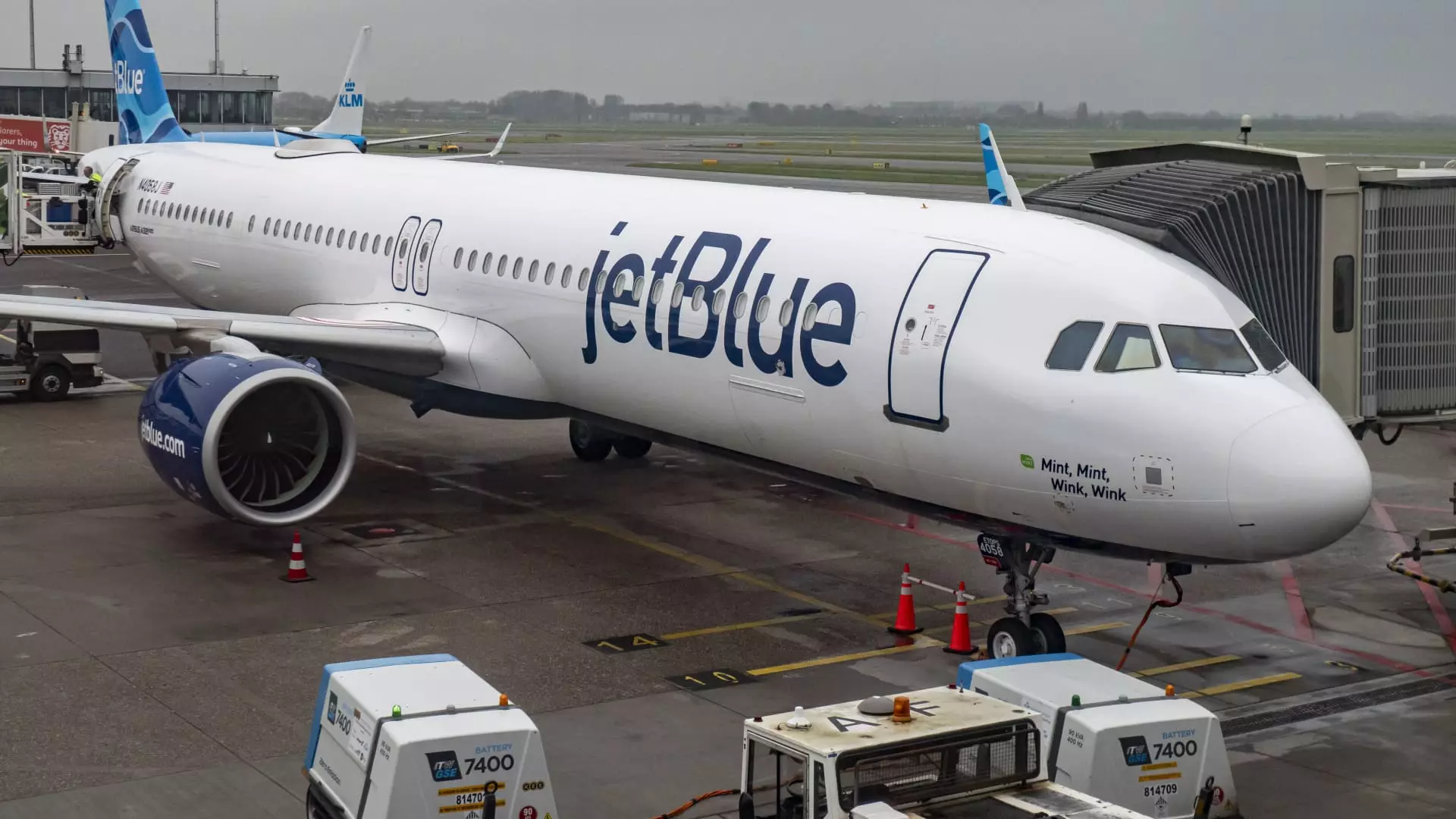In a significant move to enhance its financial health, JetBlue Airways announced on Wednesday its decision to eliminate several unprofitable routes while optimizing the deployment of its aircraft designed for business travelers. This strategic realignment appears to be a response to ongoing pressures in the aviation sector, particularly as airlines adapt to evolving post-pandemic travel dynamics. After experiencing a surge in revenue and improved bookings for the upcoming holiday months, JetBlue’s leadership is proactively addressing profitability by cutting back on routes that no longer align with market demands.
Route Reductions and Strategic Prioritization
Among the noteworthy changes is JetBlue’s announcement to discontinue service from Fort Lauderdale to Jacksonville, as well as from New York’s JFK International Airport to cities such as Austin, Houston, Miami, and Milwaukee. This is coupled with the decision to halt flights to San Jose, California, and to cut the second seasonal Paris flight, signaling a decisive shift in their operational focus. The rationale behind these cuts is clear; while Florida remains a crucial market for JetBlue, competition from larger, established carriers has made profitability in Miami elusive. JetBlue’s Vice President of Network Planning, Dave Jehn, indicated in a memo that the airline is exploring potential job opportunities for affected crew members in other cities, demonstrating a commitment to its workforce even amid these cuts.
As JetBlue grapples with intense competition from legacy airlines like American Airlines and Delta, its strategy emphasizes adaptability and resource reallocation. The grounding of Pratt & Whitney engines poses another significant challenge that the airline must manage. While the upcoming service announcements for Europe suggest expansion in certain lucrative markets, JetBlue remains vigilant in refining its core offerings to better align with customer preferences and industry trends.
The subsequent decision to discontinue some West Coast routes indicates JetBlue’s commitment to prioritizing profitable service routes rather than spreading its resources too thin across less lucrative ones. Despite the reductions, JetBlue is maintaining its service to Miami from Boston, reinforcing its focus on successful routes.
In light of these operational adjustments, JetBlue has taken steps to ensure that customers affected by route cancellations can either rebook onto alternate flights or receive refunds if no viable options are available. This proactive approach aims to maintain customer loyalty while navigating the turbulent waters of profitability and operational efficiency.
As the airline sector continues to undergo transformations, JetBlue’s recent decisions reflect its strategic pivot towards a more sustainable business model. By shedding underperforming routes and focusing on reallocated resources, JetBlue is not merely trying to survive; it is striving to become a stronger contender within the competitive arena of air travel. The challenge ahead lies in balancing cost-cutting measures with customer satisfaction and operational excellence, a task that is growing increasingly complex in today’s volatile market.

